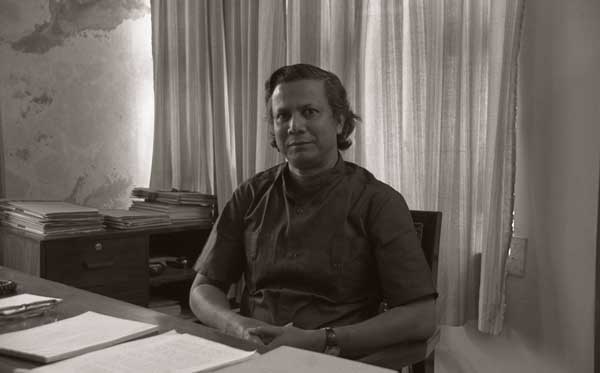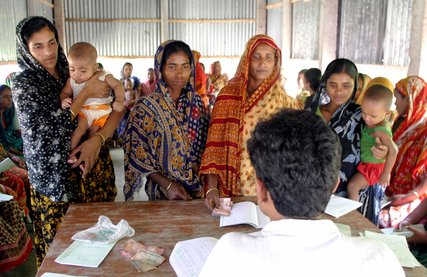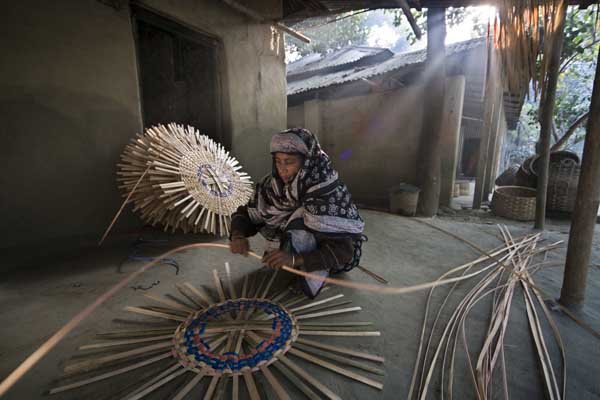By?DAVID BORNSTEIN? New York Times
This month, the Grameen Bank, the organization that won the Nobel Peace Prize for extending small loans to impoverished village women, has come under renewed attack from the government of Bangladesh. Last year,?I reported?that the government was attempting to forcibly remove the bank?s founder, Muhammad Yunus, from his position as managing director on the pretense that Yunus, then 70, was beyond the official retirement age. The government prevailed.

Now it has struck again. On Aug. 2, the cabinet of Prime Minister Sheikh Hasina Wazed?approved?a proposal to amend the 29-year-old law that governs the Grameen Bank so the government can bypass the bank?s board of directors and handpick Yunus?s successor. This is a brazen step to seize control of an institution that serves 8.4 million poor villagers across Bangladesh and provides inspiration to social entrepreneurs around the world. Sadly, it is occurring in a country where the government has been consistently ranked as highly?corrupt. Just this past June, the World Bank?canceled?$1.2 billion in financing for the much-needed Padma Bridge because of corruption at a high-level within the government.
The government?s most recent action not only threatens the bank?s independence, which has been crucial to its success, it challenges the ownership rights of millions of poor women who control 97 percent of the shares of the Grameen Bank and whose collective savings (about $1.4 billion) finances its operations. It is a powerful blow against an institution that has flourished and helped millions of poor people largely?because?it is in the hands of women.

When we picture the board of a bank we envision a table surrounded by powerful men in expensive suits. Grameen?s board is different. Of the 12 voting seats, 9 are held by village women who dress not in suits but in saris; they are borrowers of the bank who are duly elected by its more than 8 million members. The government controls only three seats, including the chairman. The board was set up this way by Yunus to make sure it stayed true to its social mission.
During its early years, Grameen switched from banking primarily with men to banking primarily with women. (Today, 96 percent of its members are women.) According to Yunus, the main reason for the shift was that a woman was a ?better fighter? against poverty than a man. A woman, he said, went to greater lengths to improve her children?s nutrition and health and educate her daughters. Simply put, she used the loans more effectively. In the past few years, the field of development has come to a similar?conclusion, with many aid workers asserting that the best way to fight poverty is to strengthen the positions of women and girls.

That?s why Grameen?s board was such a breakthrough and why it would be such a loss if it were undermined by the government. ?To have very poor women from rural areas, many of whom have not had the opportunity for secondary education, sitting on the highest policy-making body of this institution is very unique,? said Shireen Huq, a founding member of Naripokkho, a women?s rights organization in Bangladesh. ?I?m not aware of any other financial institution that has poor women borrowers on its board.?
Not just poor, but extremely poor. Eighteen years ago, I interviewed one of Grameen?s board members, a woman named Manjira who, years before, had lost a young son to a sudden illness. She told me that her most painful memory was the day before her son died. He had asked her for an ice cream that cost one taka (about 2 cents) and she did not even have that to give him. A few years later, with loans from Grameen, she had become a successful seamstress, but she would never forget what it was like to have nothing. Over the years, the bank has had many women board members who have endured and overcome similar poverty; their fellow borrowers elect them to the board because they understand the path to a better life. ?Grameen Bank? means ?village bank,? but the government-appointed board members, no matter how well educated, cannot appreciate the real struggles of village life. They are accustomed to being served tea and biscuits throughout the day.

It?s ironic that Hasina, a female head of state, is attacking Grameen?s female-dominated governing body. But it?s widely believed that Hasina is acting on a personal vendetta against Yunus, who has criticized her government and who made a brief foray into politics a few years back. In its zeal to punish and humiliate him, however, Hasina?s party, the Awami League, is demonstrating that it is prepared to go nuclear: to wrest control of the bank from millions of Bangladeshi women who are its lawful owners and their appointed representatives.
That has caused consternation among women?s rights advocates and legal scholars, including one of the?framers?of Bangladesh?s Constitution, Kamal Hossain. In Bangladesh,?women leaders?have courageously joined together across party lines to publicly voice their opposition to the government?s actions. So have leaders in other countries. In June, the 17 women in the United States Senate urged Hasina to allow Grameen?s Board to select the bank?s next director. This month, the U.S. State Department declared that it was ?deeply concerned? over the government?s recent action.
None of this seems to have made a difference yet. Still, it is unlikely that the prime minister wants to destroy the Grameen Bank, which remains highly popular and is a source of pride to most Bangladeshis. The problem may be that her advisers fail to appreciate the importance of Grameen?s independence and the role of its unique board. Last year, a government panel?concluded?that the village women on the board were ill-equipped to oversee a major financial institution, signaling that the government has plans to remove them. Given the legendary mismanagement and corruption among the country?s government-run banks, the panel?s worries are misplaced. ?Our board members are not very well educated,? explained Nurjahan Begum, Grameen?s former deputy managing director. ?But they?re intelligent and they have experience with poverty.?
In fact, Grameen?s women directors have been instrumental in shaping and pushing forward important policy decisions. They played a key role in the introduction of a pension fund for borrowers, life insurance for borrowers? husbands and higher education loans for children, Nurjahan noted. All of these have been breakthroughs for villagers. It?s unlikely that a board made up of government-appointed bankers would have prioritized such initiatives, which add cost and complexity to Grameen?s business, but help advance its mission. ?Without the input by the women members of the board,? Yunus noted in an e-mail interview I conducted with him last week, ?such decisions may not have been taken.?
Hasina has complained that Grameen?s interest rate is too high. She may not realize that the board has actually kept Grameen?s interest rate comparatively low ? it remains among the lowest of microfinance lenders around the world. At the same time, the village-based board members have not acted reflexively. During one board meeting, they debated whether to lower the bank?s loan rate and make up the lost revenues by lowering the interest paid on members? savings. In the end, they decided not to change either rate. Their decision ? to maintain a higher interest rate on savings ? ?conforms with the most up-to-date research on microfinance, which stresses the value of savings for alleviating poverty.
?It is very important to have the women owners have the final say in the management of their bank,? Yunus said in our interview. ?It sends a very important message ? they are not simply passive recipients of bank loans, they have an important voice in shaping the policies. Grameen Bank is a vital asset to these women. They have an interest in the well being of their asset.?
No one knows how this fight will turn out. Beyond the Grameen Bank, it?s clear that many Bangladeshis will not soon forget, or forgive, their government?s actions. The country?s many social entrepreneurs are unlikely to have a desire to work with the government anytime soon. And the government?s efforts to sully Yunus?s reputation through defamatory innuendos has already created a chilling effect.
?It?s frightening for citizens to see someone who is so widely respected being deliberately dragged through the mud,? said Sara Hossain, a lawyer who served as counsel to the nine women members of the bank?s board. ?It?s a real death blow to the whole idea of active citizenship. Because what it tells us is that if you try to make a difference you?ll be kicked and disgraced. I think that sends the worst possible message.?
Related links:
Muhammad Yunus banks on beating the enemies of microfinance
Nobel Peace Prize winner?s reputation under threat in riddle of ?40m loans
Bank for the poor




Leave a Reply
You must be logged in to post a comment.